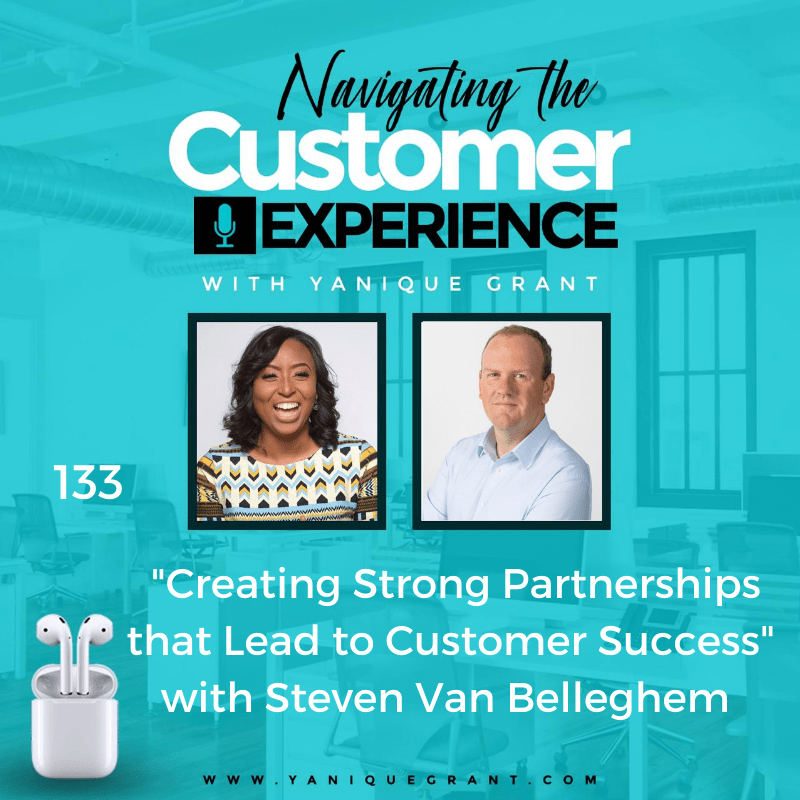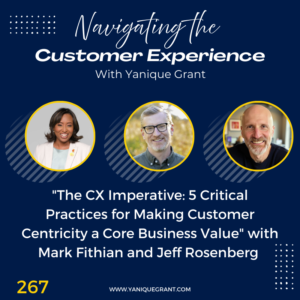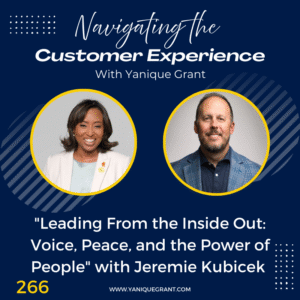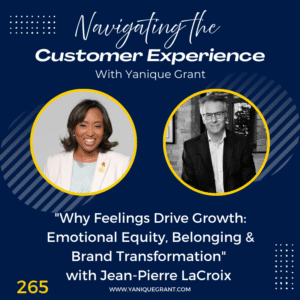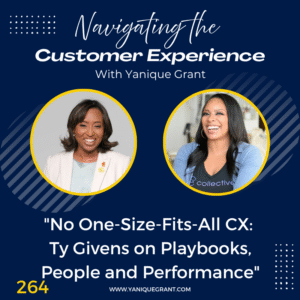Steven Van Belleghem Show Notes
Steven Van Belleghem is a global thought leader in the field of customer experience. His passion is spreading ideas about the future of customer experience.
Steven believes in the combination of common sense, new technologies, an empathic human touch, playing the long-term game and taking your social responsibility to win the hearts and business of customers over and over again.
Steven is the author of multiple international bestselling books including ‘The Conversation Manager’, ‘When Digital Becomes Human’, ‘Customers the Day After Tomorrow’, ‘The Offer You Can’t Refuse’ and a technology thriller called Eternal.
Questions
- Could you share a little bit about your journey in your own words, share with us how you got into this whole field of customer experience. And just a little bit about why you think it’s so important to the success of a business?
- So in one of your more recent books, The Offer You Can’t Refuse, you focus a lot on the importance of what you should focus on as it relates to the new generation of customer expectations. Three of the things you mentioned are ultimate convenience, partner in life and save the world. So could you share with us just explain to our listeners, what that really means, explain those concepts to us and why it is, as a business owner? Those are some things that you should really be paying attention to.
- So we have to really, really focus on ensuring that we are able to manage the expectations of our customers, do you find that customers’ expectations have changed a lot since the pandemic?
- Could you give us maybe one two or three tips that you recommend to our listeners who are business owners of small, medium as well as managers in different organizations, across different industries. Maybe one, two or three things that you think they need to pay attention to, that would be an emerging innovation or an emerging expectation of customers within the next three to five years.
- Could you share with us what’s the one online resource, tool, website or app that you absolutely can’t live without in your business?
- Could you share with us maybe one or two books that have had the biggest impact on you?
- Can you share with us; do you have anything that’s going on in your life right now? Or one thing that’s going on in your life right now that you’re really excited about, it could be something that you’re working on to develop yourself or your people?
- Where can listeners find you online?
- Do you have a quote or saying that during times of adversity or challenge, you will tend to revert to this quote because it kind of gets you back on track and gets you refocused if it is that you feel derailed or off track in any way, do you have one of those?
Highlights
Steven’s Journey
Steven shared that he started his journey in his childhood, his parents had a small photography store in Belgium, that’s where he lives in Europe. And looking back to how they’ve run the business, he came to the conclusion later on that they were obsessed with their customers, they were always talking about their customers, they were always trying to find solutions and they were also very innovative in the way how they reached out to customers and he’s talking about the 1980s, so it’s a long time ago. But they were working with database marketing already back then, they were they were working with personalized marketing and they were really trying to give people a smile on their face when they left their store.
And for him, that was like the most natural thing in the world. It’s only when he grew up and when he went to other places that he started to learn how exceptional that was to be in a place where the customer is your most important inspiration and the reason why you get up in the morning.
So that’s how he got basically almost injected with an obsession for customers in his DNA and in the way he was educated by his parents and he still believes that today.
If you look to the success or failure of a company, it is just linked to the fact how excited and how happy customers are, how well you have managed to exceed their expectations, how excited they become of what you’ve done for them, that defines your success or your failure. And then everything else that you do is a result of that and everything that you achieve is a result of how you treat your customers.
Steven Van Belleghem
And he’s convinced that he’s obsessed with that, this is what his research is about, that’s what he tries to do in his own businesses and it’s a part of who he is.
The Concepts of the New Generation of Customer Expectations
Me: So in one of your more recent books, The Offer You Can’t Refuse, you focus a lot on the importance of what you should focus on as it relates to the new generation of customer expectations. Three of things you mentioned are ultimate convenience, partner in life and save the world. So could you share with us just explain to our listeners, what that really means, explain those concepts to us and why it is, as a business owner those are some things that you should really be paying attention to.
Steven shared that in his latest book, The Offer You Can’t Refuse, he tried to build a model with different components and each of those components bring value to the modern customer.
And the whole bottom line is actually just having a good product service and a competitive price and that’s still of course, extremely important, without that you cannot make customers happy but it’s the minimum the amount, it’s not how you positively differentiate yourself.
And then in today’s world, especially after the big digital jump forward that we’ve seen in the last 14 months, digital convenience has also become the new normal, it has become a commodity, if you have it fine, if you don’t have it, your organization is suffering.
So digital convenience is seen as the most natural thing in the world, so it’s not a positive differentiator anymore, it becomes a negative one when you’re not playing that game. So that’s not how you win, that’s your ticket to get on board of the train but that’s not how you win.
And then the question is how do you win?
And then he plays with those two components that Yanique mentioned, partner in life, which is about bringing positive change in the life of the customer. This is not about how can we sell more to our customers; this is how we can bring more value in their life. This is not about optimizing your customer journey, it’s about optimizing their life journey of customers, and being part of their life journey in a way that you proactively bring value to them, that’s what a partner in life is all about.
And then that last element, change the world, save the world, he recently talked about changing your world because if you’re a small company in Belgium or if you’re a small company in Jamaica, probably those companies cannot change the world but they do have the possibility to change their world, change your world, every organization has strengths, doesn’t matter the size that they have, this even goes for an individual.
Everyone, every business has strengths that they can leverage to contribute to a better world. And to add value to society in a way that goes beyond sustainability, he’s also talking about social value, he’s talking about the ethics that you apply in your own community. And if you work with that, you can actually make a difference.
And there are more and more people who expect that from organizations, there are more and more people that want organizations to take the responsibility.
And then you have like four components, good product service price, as the lowest part of it, the digital convenience, partner in life, changing your world. And those four components individually, they bring value to a customer but if you figure out a way, how to bring that story as one storyline, as one experience towards your customers, where you connect those four elements, that’s when you create what he calls the offer you cannot refuse for your customers.
The Changing of Customers’ Expectations Since the Pandemic
Steven shared that he believes that on the elements that he just talked about, he feels that we made a big jump forward that it almost feels like we stepped into some sort of Time Machine.
If you take digital for instance, the latest study that he has seen from McKinsey actually mentioned that we made a jump of seven years into the future in terms of behaviour, without a pandemic, it would have taken seven years to bring us where we are today so that is changing expectations, that obviously this is changing how we look at things and what we expect.
But also look at the top of the model, changing your world. He thinks the pandemic was for many of us a wakeup call, that we suddenly valued much more the things we had and that we used to take for granted. And more and more people are worried about the future of our planet, not just in terms of sustainability and climate change but also the increase in poverty that we’ve seen because of COVID unfortunately. The higher demand for health care solutions to deal with the next pandemic and how we can avoid that and how we can be more ready for that. Those are all questions that are now on top of our mind that wasn’t so 15 months ago.
And the way that people look to organizations has changed in that perspective that they also understand how companies can bring value in their life, how companies can bring joy into their life and they expect these companies to keep on doing that and they expect these companies to proactively try to become part of the solution of some of those global challenges that we’re facing.
And all of that was already happening before 2020 but it all stepped into a time machine. And many of the trends that people like you and me have been talking about in the last couple of years are now suddenly a reality. It’s like the day after tomorrow became today, that’s the feeling that he has.
Tips for Emerging Expectations of Customers Within the Next 3-5 Years
Me: Could you give us maybe one two or three tips that you recommend to our listeners who are business owners of small, medium as well as managers in different organizations, across different industries. Maybe one, two or three things that you think they need to pay attention to, that would be an emerging innovation or an emerging expectation of customers within the next three to five years. Because I know you said we’ve advanced digitally about seven years ahead of our time. But what are maybe other things in the customer experience realm that don’t tap into digital, there’s that human aspect as well that you think the organizations need to focus on that you think will become as an emerging need within the next three to five years?
Steven agreed and shared that “the human part of the customer relationship will become more premium than before the pandemic.“
Steven Van Belleghem
We always thought digital would replace humans and he thinks the conclusion is that that will never happen.
There’s this old economic law of scarcity and it learns us if something becomes scarce, it actually increases in value, well, the human part in a customer relation has never been lower than today.
And because of that, we value it more than ever, and being helped by a human in real life is more premium than ever before. He doesn’t know how it is in Jamaica right now, but in Belgium, the restaurants are closed, they have to live from takeaway food or have to take care of their own stuff, and that’s fine.
But sometimes you miss the hospitality of a restaurant, that there’s a friendly human there that actually tries to give you a memorable time, a good time that you can enjoy life without having to worry about anything else, that’s what humans do, that’s not what machines does.
Machines will take care of the convenience and the efficiency in our life and that’s fine. And if companies don’t have that they’re in trouble, but most of them understand that and are building that convenience.
But the winners, in terms of customer experience will be the ones that have most empathy in their organization. Because understanding what people want, how people feel, and anticipating to that, that will be the crucial skill that will make a difference in the next couple of years.
Me: So you touched on a topic that I get asked all the time when I have different training sessions, doesn’t even matter what level they fall in the organization, whether they’re level one frontline staff, or they’re level four, let’s say you’re a C suite type of individual in the organization, empathy.
What is empathy?
In your own words, based on your own research.
And can empathy be taught?
Or is it something that you have to learn?
Does it come as a learnt experience kind of thing?
Because people ask me that question all the time, “These people lack empathy, I don’t know what else to do. I put them through all of these different certification and training programmes, they’re just not doing what we want them to do with our customers.” How do you get your team members to that point?
Steven stated that this is a crucial question, he gets it quite a lot as well. And the question is, is this the responsibility of the team members? Or is this the responsibility of the senior leader?
And first of all, there are a number of people who don’t have any empathy whatsoever and they don’t know how to work with other humans. And they’re really bad in delivering a good customer service and that percentage of people, which he believes is a very small percentage, but they do exist, that percentage of people cannot be trained, they will never be capable of helping customers in a fantastic way.
So probably, they will have to look for another job where they’re not involved customers, because they don’t have the capabilities for that.
And then you have a small group of people that has a natural talent of doing these things wonderfully no matter which context they’re in. The majority of us humans, we have the potential to listen to customers, to anticipate, to proactively help them and show a positive intent and that’s what people really like to see, a positive intent.
Steven shared that that large group of people mainly behaves based on the leadership style that they have in their organization. He’ll take it to a completely different market.
Take soccer players, isn’t it strange that sometimes the soccer player is scoring goals like crazy and is the best player in the team in Team A, and then that player gets sold to Team B, and it’s a total disaster.
It seems like he cannot score any goal anymore. Is that the fault of that player? Or did that player lose his trust and capabilities because he arrived in a different context?
And he thinks this is what is crucial. He’s an optimist and he believes that the large majority of all people that are working in an organization want to help customers in a positive way, because that gives you positive energy back.
So the question is, why don’t they do it? And the answer usually can be found in the fact that they don’t feel safe in their own environment where they are not sure what the management is expecting them to do, where they’re not sure if they are allowed to help that customer. Because the day before the senior leader said, “Yeah, you help the customer but that was very expensive for us to help that person. And now we have to pay $50 extra. Hopefully we have more clients, otherwise we’re going to lose money.”
If an employee hears that, they think, “Oh, my God, if you help a client, we’re losing money and my leader becomes really angry. So I’m not going to do that next time.”
So they change their behaviour based on what they hear and feel from senior leaders and the fact that you feel safe or that you don’t feel safe, determines if you will show the behaviour that customers expect. So for all your business owners that are listening, the first step before blaming your employees is just look in the mirror and ask yourself, “How can I change my behaviour to make sure that my employees feel safer to act in a positive way towards customers?”
Me: Wow, that is a very, very, very good answer. And I like the way you framed it in terms of taking responsibility for what are you contributing to how that person is feeling and how that person is behaving rather than saying it’s their fault, it’s their responsibility. Really, really a great response!
App, Website or Tool that Steven Absolutely Can’t Live Without in His Business
When asked about an online resource that he cannot live without in his business, Steven shared that for him personally, that is probably WhatsApp. He uses WhatsApp all the time and he thinks it’s so convenient to communicate. He uses it to communicate with his clients, of course his family and friends, but also with his clients.
He uses it to find jokes, but I use it to get inspiration and they have these inspiration groups that they share stuff with each other. So he thinks that’s the one that he would miss most. He asked Yanique what’s the one app she cannot live without.
Me: The one app that I absolutely can’t live without in my business? I asked that question all the time and I don’t think I’ve ever had a guest ask me back that question. I guess for me, the one app that I probably couldn’t live without is maybe the Notes app on my phone and my computer. I’m an Apple user, so all of my devices are synced across, my phone, my MacBook and my iPad, and you may go somewhere and you see something and you take a picture, or maybe it’s just to reference maybe an article that I want to write or maybe a topic that I’m looking for a particular guest on this particular area. And it just allows me to consolidate all of my thoughts and all of the things that I want to jot down in one place and I don’t need to go back to my computer after I’m on my phone at the supermarket, for example, or at the beach and then copy and paste that information because it already synced across all devices, so I can jump on to the next device and click on the note that I wrote there, and I’m able to reference it. So, it’s made life more convenient and seamless for me. And I think that’s one of the reasons why I am definitely a loyal Apple customer because I find that they’re always finding ways to make people’s lives easier.
Steven agreed and shared that that’s what they do best. And he’s with her, he’s an Apple user as well and he also loves to use the Notes.
Me: And Notes has really evolved over the years, now you can like do scans in there and you can doodle with the Apple Pencil, or even a regular, one of those pens that has the tip that you can use on the phone. If you’re an Apple user, let’s say for the last five to seven years, and you see how they’ve evolved Notes, it’s really has become a tool that is not just to jot things down, but you can, as I say, save pictures in there, PDF, signatures, write with your finger or with a pen, it has become so indispensable that you really value it very much. So I would say that’s probably the one app that I absolutely couldn’t live without in my personal or professional life.
Books That Have Had the Greatest Impact on Steven
When asked about books that have had the biggest impact, Steven shared that it’s been a while but he thinks the book that has the biggest impact to really open up his point of view on how customers make decisions to buy something, at the decision making in their buying process. It was a book came out in the late 1990s from Geoffrey Moore it’s called, Crossing the Chasm: Marketing and Selling High-Tech Products to Mainstream Customers. And it’s a book that speaks about the adoption cycle of customers. And one of the conclusions is that the marketing and the communication that you use to convince the innovators and early adopters in the market, and that creates the early success.
The communication that you use there should be completely different than the communication and the approach that you use to reach out to the early majority. Because this first group is excited about technology and new features and stuff like that. The early majority is the opposite, they’re afraid of new things. So, they need to be convinced that everything is easy to use and safe, so they don’t want to hear all the specs and everything like that, it’s a different kind of communication.
And a lot of new products fail because the people who make them think that everyone is an innovator or an early adopter, and because of that, they just focus on that and they have an early success, they think, “Okay, we’re on a roll,” and then they fail. And they fall into chiasm between this first and second group. And I read that in the late 90s and of course, if you would read the book today, the examples and stuff like that are completely outdated.
But he believes the theory, the model that is used in that story is still very relevant today. And that was like the first business book that he read that really had a big impact on him.
What Steven is Really Excited About Now!
When asked about something he’s doing to develop himself or his people, Steven shared that it actually started last year, he had a hobby, a dream project that got a little bit out of hand.
It was always his dream to write a fiction book, a novel thriller. And Yanique mentioned it in the introduction in the beginning of the podcast. He wrote a thriller, it’s called Eternal.
Unfortunately, it’s only available in Dutch so far, that’s his native language. But he got really excited about it and he was really scared because he has been writing business books for years, he has written five of them and he’s very thankful for the success that he had with them.
And he’s getting a little bit used to that whole process and how it goes, but then when he launched this new book, this fiction novel, he was scared to see what the reactions would be, he was so nervous. And now when the first reactions came in and they were positive and people were actually reading it and buying the book for Christmas gifts, he was really, really happy with that.
And then the publisher got really excited as well. And then they asked him, “We know that this is a hobby that got a little bit out of hand. But what do you think about the idea of writing three books in the series instead of one?”
And he’s currently working, he’s finishing the manuscript of the second one, he does that in the evenings, early mornings, I does that in the weekend, I does that in between, but he really loves the writing process. And it’s given him a lot of pressure on the one hand, but on the other hand, he’s also enjoying that he can do something completely new. So he’s excited and still nervous about this project.
Where Can We Find Steven Online
YouTube – Steven Van Belleghem
Instagram – Steven Van Belleghem
LinkedIn – Steven Van Belleghem
Twitter – @StevenVBe
Quote or Saying that During Times of Adversity Steven Uses
When asked about a quote or saying that he tends to revert to, Steven shared that he one of those, it’s a quote from Churchill actually, he’s a fan of Sir Winston Churchill and his quotes. And one of his favourite quotes is, “Success is the consequence of failure after failure after failure without losing your enthusiasm.”
Me: And that has definitely helped you over the years.
Steven said absolutely and he was very fortunate he had a good time so far, COVID was a challenge in the beginning but then he said they need to fight back and make sure that the business keeps on going. And that actually worked. And moments like that it really helps to be focused and to keep that mindset positive and motivated to keep on going even if you don’t have short term results with that.
Please connect with us on Twitter @navigatingcx and also join our Private Facebook Community – Navigating the Customer Experience and listen to our FB Lives weekly with a new guest
Grab the Freebie on Our Website – TOP 10 Online Business Resources for Small Business Owners
Links
The ABC’s of a Fantastic Customer Experience
Do you want to pivot your online customer experience and build loyalty – get a copy of “The ABC’s of a Fantastic Customer Experience.”
The ABC’s of a Fantastic Customer Experience provides 26 easy to follow steps and techniques that helps your business to achieve success and build brand loyalty.
This Guide to Limitless, Happy and Loyal Customers will help you to strengthen your service delivery, enhance your knowledge and appreciation of the customer experience and provide tips and practical strategies that you can start implementing immediately!
This book will develop your customer service skills and sharpen your attention to detail when serving others.
Master your customer experience and develop those knock your socks off techniques that will lead to lifetime customers. Your customers will only want to work with your business and it will be your brand differentiator. It will lead to recruiters to seek you out by providing practical examples on how to deliver a winning customer service experience!

